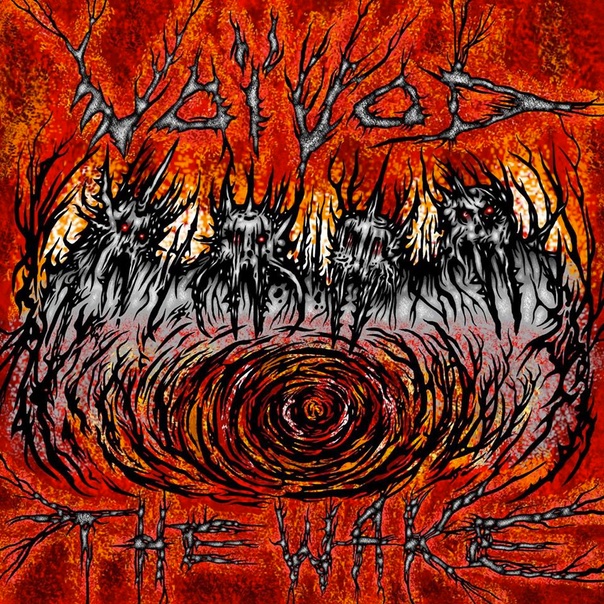ALBUM REVIEW: Voivod crashes back into prog-thrash with ‘The Wake’
Out of morbid curiosity, I asked someone with spectacular indifference to heavy metal for his opinion on the singles to Voivod’s new album, The Wake. He wrote back repulsed that a thrash metal band could have the gall to make “Obsolete Beings” a whopping five minutes long. That single is actually one of the shortest cuts on the album. It feels how Voivod should sound, but it’s nowhere near as idiosyncratic as anything off of 1987’s Killing Technology. “Obsolete Beings” isn’t far off from the feel of most of The Wake.
The Wake
Voivod
Sept. 21
At their best, these Canadian prog-thrashers express feelings by proxy, weaving stinging minor chords and obscure scales into technological post-war landscapes. Voivod invite listeners to step across a dimensional divide and marvel at the vast desolation of alien civilizations.
Listening to albums like 1986’s Rrröööaaarrr or 1988’s Dimension Hatröss is like hearing cyber-bedouins bellowing their manifest destiny conqueror’s call, and to feel the cold metal factory floors where the ruler-machines were first assembled. Voivod mocks the inevitable fate of mankind by pointing to a dystopian future of its own creation. Unfortunately, at its worst, it’s less Philip K. Dick and more Plan Nine From Outer Space. Enjoyment of the band sometimes hinges on one’s tolerance for schlock. The Wake doesn’t push tolerance too much, but normalcy in progressive music is always a double-edged sword.
For those who can get into the proper headspace, The Wake is easily the best Voivod album of the decade. Urgent, alive and anxious, it succeeds where 2013’s Target Earth failed. It almost sounds like the late guitarist Denis “Piggy” D’Amour is still alive and blasting away on songs like the wacky “Event Horizon” or the head-banging closing track, “Sonic Mycelium.”
There’s verve in the songwriting, and confidence in the playing. Songs like the killer opener “Obsolete Beings” pick up odd infectious rhythms, then suddenly stop dead, only to take even stranger turns. “Iconspiracy,” one of the most thrash-sounding songs on the album, takes the audience from one technical riff to another, leaving listeners bewildered at how they packed so many ideas into one track. Still, Voivod hasn’t strayed from the energy of its past creations—a blessing and a curse for longtime listeners.
The dissonance and the prog rhythms of Voivod’s previous albums simply don’t shock the way they did 13 albums ago. It’s not enough for Voivod to just be dissonant with acts like Jute Gyte making noise. Despite the infectious interplay between the guitar and the bass on songs like “Orb Confusion,” Michel “Away” Langevin’s drums often merely keep the beat. He ends up diminishing arrangements by failing to add much to them.
The Wake suffers from over-production. Daniel “Chewy” Mongrain’s dull guitar tone lacks a solid crunch and vocalist Denis “Snake” Bélanger is too exposed in the mix. This makes the singer’s otherwise acceptable performance into a cringy distraction. As seen on “The End of Dormancy,” songs devolve into familiar chugging riffs, only scratching the surface of what they used to accomplish with their signature chords. Enjoying this album becomes an exercise in forgiveness. Enjoying what makes The Wake a good Voivod album also demands your ability to forgive the things that keep it from being a great Voivod album.
Listening to this album compares to watching an OK episode of Star Trek; you’ll appreciate it more if you haven’t tuned in for a while. The Wake shows Voivod as the band it is: too weird to live, but too rare to die. It’s not Voivod at its best. Thankfully, bands like Voivod are never really at their worst.
— By Josh Rosen

